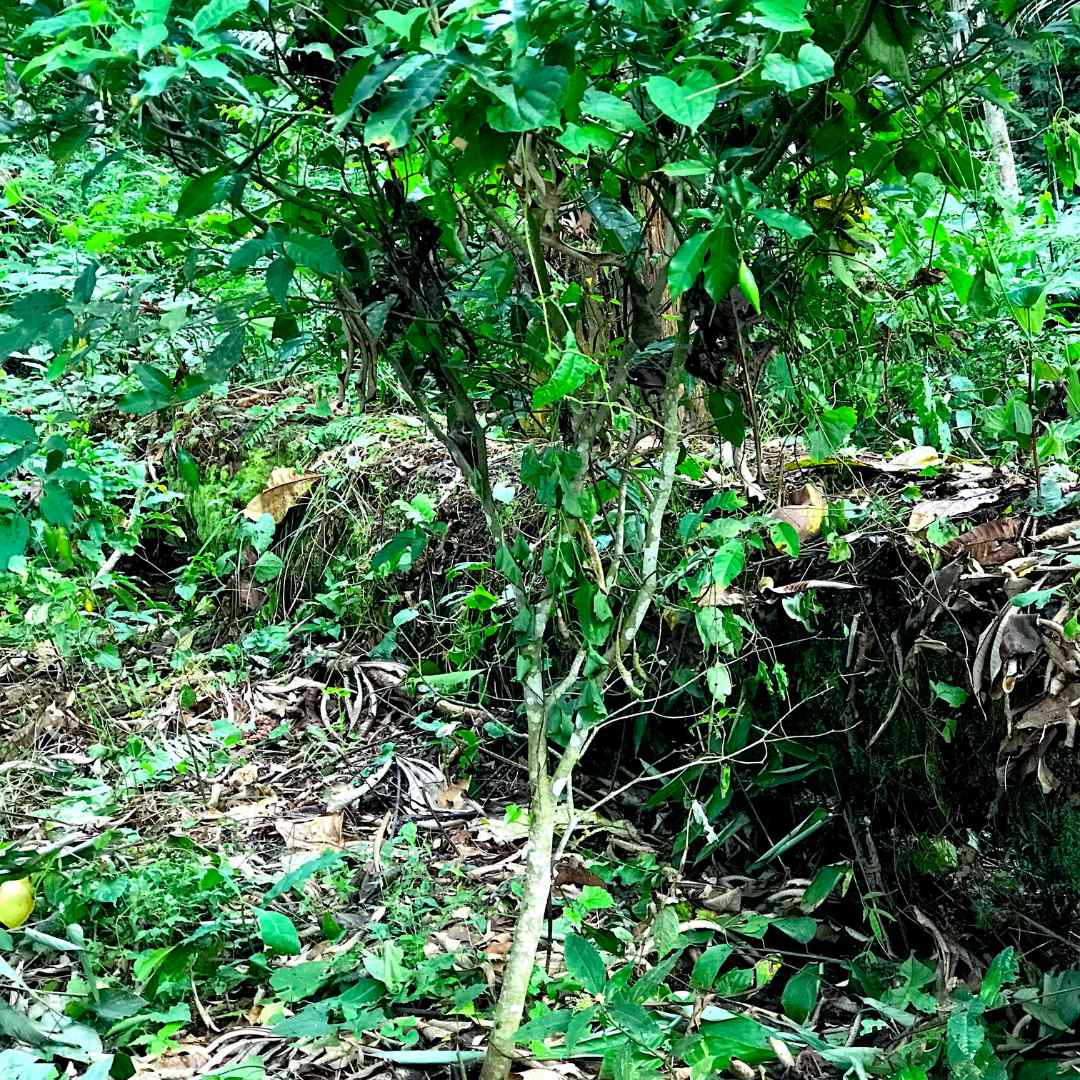Drug addiction is a devastating disease that affects individuals and their loved ones. Traditional treatment options such as medication-assisted therapy, behavioral therapies, and support groups have limited success rates. However, a novel approach to addiction treatment called Ibogaine flood dose therapy has recently gained popularity for its potential in treating opioid addiction and drug dependence. In this article, we will explore what Ibogaine flood dose therapy is, how it works, its potential benefits and risks and whether it can be a viable treatment option for addiction.
What is Ibogaine Flood Dose Therapy?

Ibogaine is a psychoactive alkaloid derived from the root bark of the iboga plant, which is native to Central Africa. Ibogaine hydrochloride, a purified form of the substance, plays a crucial role in the therapy for substance use disorders, including opioid dependence and craving reduction. It has been used for centuries in traditional African spiritual practices and as a medicine for various ailments. In recent years, it has gained attention as a potential treatment for addiction.
Ibogaine flood dose therapy involves taking a large dose of Ibogaine under medical supervision in a controlled environment. The term “flood dose” refers to the high dose required to produce the therapeutic effects of Ibogaine. The dose used in flood dose therapy is much higher than the dose used in traditional African spiritual practices.
How Does Ibogaine Flood Therapy Work?
The exact mechanism of action of Ibogaine is not fully understood, but it is thought to work on multiple levels. Typical dosing in ibogaine flood dose therapy ranges from 17 mg/kg to 55 mg/kg, administered under medical supervision. One of the primary effects of Ibogaine flood dose therapy is that it resets the brain’s reward system, which is disrupted in addiction. It does this by increasing the production of a protein called GDNF (Glial cell line-Derived Neurotrophic Factor) that stimulates the growth and repair of dopamine receptors.
Ibogaine also has hallucinogenic properties that induce a dream-like state, allowing the individual to gain insight into their addiction and underlying issues. This can lead to a profound psychological and spiritual experience that helps the individual overcome their addiction.
Potential Benefits of Flood Dose Therapy
Here is a more detailed rewrite on the potential benefits of flood dose ibogaine therapy for addiction treatment:
Potential Benefits of Flood Dose Ibogaine Therapy
Flood dose ibogaine therapy, which involves administering a large single dose of the psychoactive compound ibogaine, has shown promise as a treatment for various substance use disorders. While more research is still needed, some of the potential benefits reported from this approach include:
High Rates of Sustained Abstinence
Several observational studies and anecdotal reports suggest that flood dose ibogaine therapy may lead to high rates of sustained abstinence from drugs and alcohol. Some sources cite success rates as high as 50-80% of individuals remaining abstinent six months or longer after treatment[1]. However, it’s important to note that these findings are based on retrospective data and may be subject to biases.
Rapid Opioid Detoxification and Interruption of Addiction Cycle
One of the most notable potential benefits is ibogaine’s ability to rapidly attenuate acute opioid withdrawal symptoms and drug cravings, particularly for opioids like heroin. The detoxification process facilitated by a flood dose can take as little as 24-72 hours, in contrast to traditional detox programs that may span several weeks. This rapid detox is thought to occur due to ibogaine’s action on various neurotransmitter systems involved in addiction and withdrawal.
Potential Psychological and Spiritual Insights
In addition to physiological effects, many individuals report profound psychological and spiritual experiences during the ibogaine flood dose session. These subjective effects, often described as dreamlike states or visions, may provide insights into the roots of addictive behaviors and catalyze emotional healing. Some propose that these experiences can facilitate self-awareness, personal growth, and a shift in perspective that supports long-term recovery.
Improved Mental Health and Well-being
Anecdotal reports suggest that successful ibogaine therapy can lead to improvements in overall mental health and well-being beyond just treating substance use disorders, including alleviating opioid withdrawal symptoms. Individuals may experience reductions in symptoms of co-occurring conditions like depression, anxiety, and post-traumatic stress disorder (PTSD). However, these potential benefits require further investigation through controlled clinical trials.
It’s important to note that while flood dose ibogaine therapy shows promise, it is still considered an experimental treatment approach with potential risks and adverse effects. Proper medical screening, supervision by qualified professionals, and adherence to safety protocols are crucial for mitigating risks and maximizing potential benefits. Additionally, ibogaine therapy should be integrated into a comprehensive treatment plan that includes counseling, behavioral therapies, and ongoing support for sustained recovery.
Potential Risks of Ibogaine Flood Therapy
Like any medical treatment, Ibogaine flood dose therapy has potential risks and side effects. Opioid detoxification, particularly with ibogaine, carries significant risks including severe withdrawal symptoms and potential complications.
Some of the reported risks include:
Cardiac Complications
Ibogaine can cause changes in heart rhythm and blood pressure, which can lead to cardiac complications. Individuals with pre-existing heart conditions should not undergo Ibogaine flood dose therapy.
Psychological Distress
Ibogaine therapy can induce intense psychological and emotional experiences that can be distressing for some individuals. Those with a history of mental illness may be at higher risk of experiencing psychological distress.
Legal Status
Ibogaine is currently illegal in the United States and many other countries. Individuals who undergo Ibogaine flood dose therapy may face legal consequences.
Is Ibogaine Therapy a Viable Treatment Option for Addiction?
Ibogaine therapy has emerged as a controversial and compelling option in the field of addiction treatment. Derived from the root bark of the African shrub Tabernanthe iboga, ibogaine is known for its potent psychoactive effects and its potential to interrupt addiction cycles. This therapy is not without its risks and complexities, but for some, it offers a path to recovery that conventional treatments have failed to provide. Here’s an in-depth look at the viability of ibogaine therapy for addiction.
Understanding Ibogaine Therapy
How Ibogaine Works

Ibogaine therapy leverages the substance’s ability to interact with various neurotransmitter systems in the brain, offering a unique approach to treating addiction:
- Neurotransmitter Modulation:
- Dopamine System: Ibogaine influences dopamine release and receptor activity, addressing the brain’s reward pathways that are typically hijacked by addictive substances.
- Serotonin System: Enhances serotonin levels and receptor function, which can improve mood and reduce anxiety, both crucial in the recovery process.
- Opioid Receptors: Interacts with opioid receptors, potentially blocking the effects of opioids and reducing cravings and withdrawal symptoms in individuals with opioid dependence.
- NMDA Receptors: Acts as an antagonist at these receptors, which may help in mitigating neurotoxic effects and alleviating withdrawal symptoms.
- Psychoactive Experience:
- Hallucinations: Ibogaine induces intense, dream-like hallucinations that can last for several hours, providing profound insights and emotional processing.
- Spiritual and Emotional Insight: Many users report significant personal and spiritual insights during their ibogaine experience, which can be therapeutic and transformative.
- Physical Reset:
- Cravings Reduction: Post-treatment, many individuals experience a substantial reduction in cravings for addictive substances.
- Withdrawal Alleviation: Ibogaine can significantly reduce the severity of withdrawal symptoms, making the detoxification process more manageable.
Phases of Ibogaine Treatment
Ibogaine therapy typically unfolds in three phases:
- Acute Phase:
- Lasts 4 to 8 hours.
- Characterized by intense visual and emotional experiences.
- Requires close medical supervision.
- Processing Phase:
- Follows the acute phase and lasts another 24 to 36 hours.
- Involves deep reflection and emotional processing.
- Patients often remain in a calm, introspective state.
- Afterglow Phase:
- Can extend for several days to weeks after treatment.
- Patients report enhanced mood, clarity, and a significant reduction in cravings.
- This phase is crucial for integrating the experience and establishing long-term recovery strategies.
Benefits of Ibogaine Therapy
Effective in Treating Various Addictions
Ibogaine has shown promise in treating addiction to a range of substances, including:
- Opioids (e.g., heroin, morphine), particularly in the treatment of opioid use disorder, where it can rapidly reduce withdrawal symptoms, aid in opioid detox, and help individuals maintain abstinence from opioids for extended periods.
- Stimulants (e.g., cocaine, methamphetamine)
- Alcohol
- Nicotine
Rapid Action
Unlike traditional addiction treatments that often require prolonged engagement, ibogaine’s effects are rapid. A single session can significantly reduce cravings and withdrawal symptoms, including those associated with heroin withdrawal, offering a quick intervention that can be particularly valuable for individuals struggling with severe dependence.
Holistic Approach
Ibogaine therapy not only addresses the physical aspects of addiction but also facilitates deep emotional and psychological healing. The intense psychoactive experience can help individuals confront underlying issues contributing to their addiction, providing a holistic approach to recovery.
Potential for Lasting Change
Many patients report lasting changes in their relationship with addictive substances following ibogaine therapy. The combination of reduced cravings, alleviated withdrawal symptoms, and profound personal insights can set the stage for sustained recovery.
Risks and Considerations
Severe Side Effects
Ibogaine is not without significant risks, including:
- Cardiac Complications: Risk of severe arrhythmias and cardiac arrest.
- Seizures: Potential for neurotoxicity leading to seizures, particularly at higher doses.
- Psychiatric Effects: Possible emergence of manic episodes, confusion, and prolonged psychological disturbances.
- Gastrointestinal Issues: Commonly causes nausea and vomiting during the treatment process.
Need for Medical Supervision
Due to its potent effects and associated risks, ibogaine therapy for treating drug dependence should only be administered under strict medical supervision. This includes:
- Pre-treatment Assessment: Thorough evaluation to determine suitability and minimize risks.
- Continuous Monitoring: Close monitoring during and after the treatment to manage any adverse effects.
- Post-treatment Support: Follow-up care to help integrate the experience and support long-term recovery.
Legal and Accessibility Issues
Ibogaine is classified as a Schedule I controlled substance in the United States and many other countries, making it illegal to possess or use outside of approved research settings. However, it is legally available in countries such as Mexico, Canada, and some European nations, where specialized clinics offer ibogaine treatment.
Lack of Standardized Protocols
Currently, there are no universally accepted protocols for ibogaine therapy, leading to variations in ibogaine dose, administration, and support among different providers. This lack of standardization can affect the consistency and safety of treatment outcomes.
Is Ibogaine Therapy Right for You?
Considerations for Candidates
Ibogaine therapy may be a viable option for individuals who:
- Have not found success with conventional addiction treatments.
- Are seeking a rapid and potentially transformative intervention.
- Are physically healthy and can undergo medical screening and supervision.
- Are prepared for an intense psychoactive experience and the associated emotional and psychological processing.
Consultation and Preparation
Before considering ibogaine therapy, it is crucial to:
- Consult with healthcare professionals: Seek advice from medical and mental health experts to understand the potential risks and benefits.
- Research and select a reputable clinic: Choose a facility with experienced medical staff and robust safety protocols.
- Prepare for the experience: Understand the nature of the treatment and be prepared for the intense physical, emotional, and psychological effects.
Conclusion
Ibogaine flood dose therapy is a novel approach to addiction treatment that has gained popularity in recent years. While it has been reported to have high success rates and rapid detoxification, it also carries significant risks and is not yet approved by regulatory bodies. Individuals considering Ibogaine flood dose therapy should thoroughly research the potential benefits and risks and ensure that it is being administered in a safe and controlled environment.


